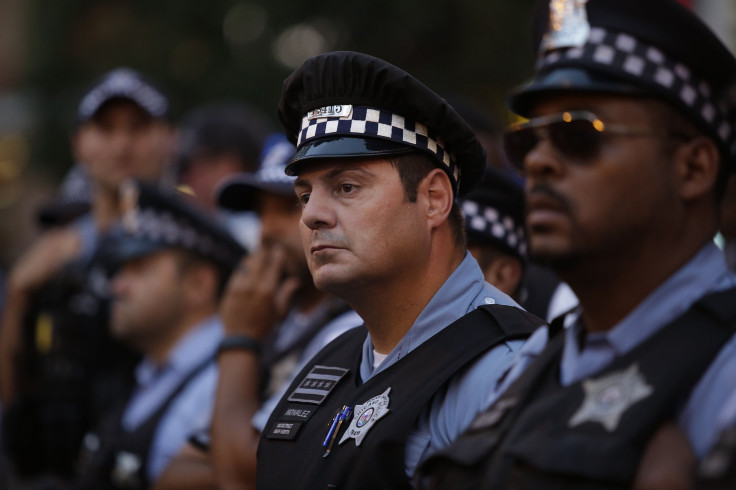Police Shootings By Race: NYPD Officer Faces Murder Charges For Shooting Mentally Ill Woman In The Bronx

An NYPD Sgt. Hugh Barry was charged Wednesday for committing murder when he shot a mentally ill woman named Deborah Danner in October 2016 inside her apartment in Castle Hill neighborhood in the Bronx.
Sgt. Barry’s indictment marked the first time since 1999 that a city cop faced a top homicide count. He became the first NYPD officer charged with murder on-duty since four police officers fired 41 shots at an unarmed West African immigrant Amadou Diallo in 1999.
The eight-year veteran NYPD Sgt. Barry has been placed on suspended duty till the results of his criminal case is pending. If he is convicted, he will face 25 years to life in prison.
Read: Police Shootings And Killings Soar In 2017: Statistics In New Year On Pace To Break Records
Bronx District Attorney Darcel Clark had asked the state to appoint a special grand jury for his case. After the incident in 2016, State Attorney General Eric Schneiderman, who has the authority to investigate police shootings of unarmed people, declined the request of a grand jury as he concluded that preliminary indicated Danner was armed at the time the confrontation took place.
Barry pleaded not guilty to second-degree murder, manslaughter and criminally negligent homicide in shooting of a black person, Wednesday. After his hearing, he posted a $100,000 bond and left the court without commenting.
Prosecutors argued that Barry had failed to get important background information about Danner’s mental health and he also had disregarded his NYPD training “in dealing with emotionally disturbed persons, by rushing into Ms. Danner’s apartment.”
Barry responded to a call that said that a mentally ill woman was behaving “irrationally” in her apartment. When Barry reached her apartment, Danner reportedly had scissors. Barry had been successful in persuading her to drop her scissors however, she picked up a baseball bat instead and charged towards him. Barry shot Danner twice in the torso, after which she was taken to a local medical centre and later succumbed to her injuries.
Bronx DA finally charges NYPD Sgt Hugh Barry, killed 66yo Deborah Danner: murder, manslaughter, crim negl homicide https://t.co/SHdc5DqxxW pic.twitter.com/PnXxsSC73l
— Joo-Hyun Kang 강주현 (@JooHyun_Kang) May 31, 2017
“Debbie had no reason to die, and the cop had no reason to shoot her,” said Wallace Cooke, 74, an NYPD retiree and Danner’s cousin.
“He intended to kill her — no doubt,” Cooke said. “When you shoot somebody twice in her own bedroom? All he had to do was close the damn door and walk out.”
Read: Police Killings By Race: White, Black, Hispanic Cops Divided Over Shootings, Inequality, Polls Show
Mayor de Blasio denounced the incident on Wednesday and said: “The loss of Deborah Danner was a tragedy felt deeply by our city. Now that the grand jury has made its decision, we have full faith in the district attorney to lead a fair and thorough prosecution.”
“Sgt. Barry disregarded his training by the NYPD, his training as an officer, his training as a sergeant, in dealing with emotional disturbed persons by rushing in to Ms. Danner's apartment,” said Bronx Assistant District Attorney Wanda Perez Maldonado.
The New York City Sergeants Benevolent Association (SBA) criticized the grand jury’s decision and said it was angered by the indictment and said Barry has an extraordinary record in his eight years of service. The union said that Barry acted legally during the situation and was trying to save his own life.
“There is no way of telling what a person with mental illness is going to do and we can sit and second guess,” said SBA President Ed Mullins. “We can say, why didn't he taser, why didn't he close the door. Officers risk their lives going into these situations. It's a split-second decision. I firmly believe in the weeks and months ahead that you will see Sgt. Barry acquitted of all charges.”
© Copyright IBTimes 2024. All rights reserved.












